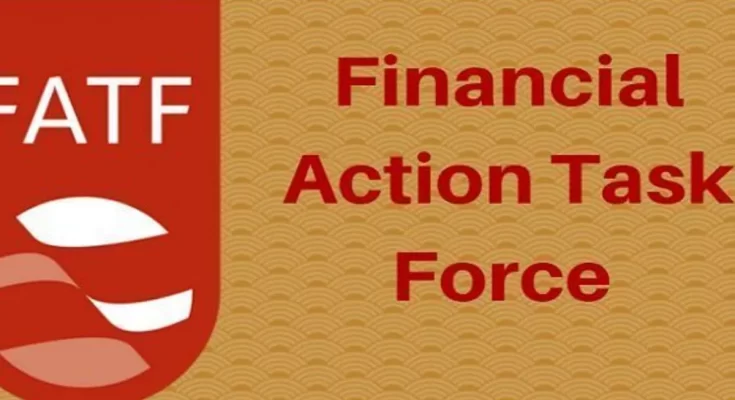The first Plenary of the FATF under the Presidency of T. Raja Kumar of Singapore concluded. Delegates from over 200 jurisdictions of the Global Network participated in these discussions at the FATF headquarters in Paris.
FATF members agreed to release, for public consultation, draft guidance on Recommendation 24 to help countries and the private sector implement FATF’s strengthened requirements on beneficial ownership to prevent criminals from hiding illicit activity behind opaque corporate structures. FATF also approved the release of a public consultation document on proposed revisions to Recommendation 25 on transparency and beneficial ownership of legal arrangements.
Compliance with the FATF Standards
Jurisdictions under Increased Monitoring
Jurisdictions under increased monitoring are actively working with the FATF to address the strategic deficiencies in their regimes to counter money laundering, terrorist financing, and proliferation financing. When the FATF places a jurisdiction under increased monitoring, it means the country has committed to resolve swiftly the identified strategic deficiencies within agreed timeframes. New jurisdictions subject to increased monitoring are the Democratic Republic of Congo (DRC), Mozambique and Tanzania.
The FATF and FATF-style regional bodies (FSRBs) continue to work with the jurisdictions below as they report on the progress achieved in addressing their strategic deficiencies. The FATF calls on these jurisdictions to complete their action plans expeditiously and within the agreed timeframes. The FATF welcomes their commitment and will closely monitor their progress. The FATF does not call for the application of enhanced due diligence measures to be applied to these jurisdictions. The FATF Standards do not envisage de-risking, or cutting-off entire classes of customers, but call for the application of a risk-based approach. Therefore, the FATF encourages its members and all jurisdictions to take into account the information presented below in their risk analysis.
The FATF identifies additional jurisdictions, on an on-going basis, that have strategic deficiencies in their regimes to counter money laundering, terrorist financing, and proliferation financing. A number of jurisdictions have not yet been reviewed by the FATF or their FSRBs, but will be in due course.
Jurisdictions subject to a call for action
FATF identifies countries or jurisdictions with serious strategic deficiencies to counter money laundering, terrorist financing, and financing of proliferation. These jurisdictions are subject to a call for action to protect the international financial system. Myanmar has been added to the list of jurisdictions subject to a call for action. When applying enhanced due diligence measures, countries should ensure that flows of funds for humanitarian assistance, legitimate NPO activity and remittances are not disrupted.
Democratic People’s Republic of Korea (DPRK)
[unchanged since February 2020]
The FATF remains concerned by the DPRK’s failure to address the significant deficiencies in its anti-money laundering and combating the financing of terrorism (AML/CFT) regime and the serious threats they pose to the integrity of the international financial system. The FATF urges the DPRK to immediately and meaningfully address its AML/CFT deficiencies. Further, the FATF has serious concerns with the threat posed by the DPRK’s illicit activities related to the proliferation of weapons of mass destruction (WMDs) and its financing.
The FATF reaffirms its 25 February 2011 call on its members and urges all jurisdictions to advise their financial institutions to give special attention to business relationships and transactions with the DPRK, including DPRK companies, financial institutions, and those acting on their behalf. In addition to enhanced scrutiny, the FATF further calls on its members and urges all jurisdictions to apply effective counter-measures, and targeted financial sanctions in accordance with applicable United Nations Security Council Resolutions, to protect their financial sectors from money laundering, financing of terrorism and WMD proliferation financing (ML/TF/PF) risks emanating from the DPRK. Jurisdictions should take necessary measures to close existing branches, subsidiaries and representative offices of DPRK banks within their territories and terminate correspondent relationships with DPRK banks, where required by relevant UNSC resolutions.
Iran
[unchanged since February 2020]
In June 2016, Iran committed to address its strategic deficiencies. Iran’s action plan expired in January 2018. In February 2020, the FATF noted Iran has not completed the action plan.[2]
In October 2019, the FATF called upon its members and urged all jurisdictions to: require increased supervisory examination for branches and subsidiaries of financial institutions based in Iran; introduce enhanced relevant reporting mechanisms or systematic reporting of financial transactions; and require increased external audit requirements for financial groups with respect to any of their branches and subsidiaries located in Iran.
Now, given Iran’s failure to enact the Palermo and Terrorist Financing Conventions in line with the FATF Standards, the FATF fully lifts the suspension of counter-measures and calls on its members and urges all jurisdictions to apply effective counter-measures, in line with Recommendation 19.[3]
Iran will remain on the FATF statement on [High Risk Jurisdictions Subject to a Call for Action] until the full Action Plan has been completed. If Iran ratifies the Palermo and Terrorist Financing Conventions, in line with the FATF standards, the FATF will decide on next steps, including whether to suspend countermeasures. Until Iran implements the measures required to address the deficiencies identified with respect to countering terrorism-financing in the Action Plan, the FATF will remain concerned with the terrorist financing risk emanating from Iran and the threat this poses to the international financial system.
https://www.fatf-gafi.org/publications/fatfgeneral/documents/outcomes-fatf-plenary-october-2022.html




